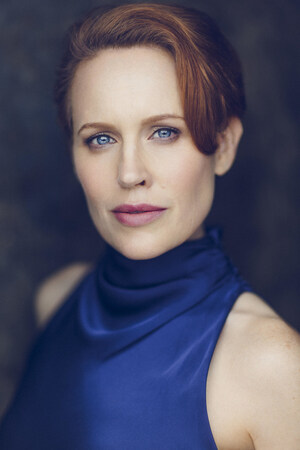American Foundation for the Blind (AFB) and American Printing House for the Blind (APH) Partner to Expand Reach of Helen Keller Archival Collection
AFB loans historic collection to APH Museum, making Louisville a center of US disability history
WASHINGTON, Oct. 10, 2019 /PRNewswire/ -- The American Foundation for the Blind (AFB) and the American Printing House for the Blind (APH) today announced a new partnership that will allow expanded public access to a wealth of historical materials. Two of AFB's historical collections—the Helen Keller Archive and the AFB Archive—will be housed at the American Printing House for the Blind in Louisville, Kentucky.
This partnership is the result of a commitment by both organizations to significantly increase access to the history of disability and blindness in the United States. Housed under one roof and together with APH's current rich collection of curated materials representing the history of innovation in blindness accessibility, APH and AFB will more effectively represent this important and unacknowledged history. This partnership will inspire a new generation to demand equality for those with vision loss in American society.
The partnership also further builds on AFB's recent efforts to make these historic materials more widely available, particularly through its digital archive. Thanks to generous support for the National Endowment for the Humanities and American Express, the Helen Keller Archive is also available online at www.afb.org/HelenKellerArchive.
The American Printing House for the Blind will design and install an expansive, new, accessible public exhibit in its museum, and will build a state-of-the art archival facility for these materials to be used by researchers. Centralizing core resources on the history of blindness that span from the early 17th century to the late 20th century solidifies Louisville both as a destination for disability studies, and fulfills AFB's mission to facilitate research and education surrounding the history of vision loss.
Helen Keller is a name known around the world as a symbol of courage in the face of incredible odds, but that's just one part of her story. Keller was an original social justice warrior, writing a scathing letter to Nazi students before WWII, visiting Japan as the United States' first Goodwill Ambassador after the atomic bombs were dropped, and shaping disability policies that are still improving lives to this day. Helen Keller's work was so influential that it is often considered the foundation of all disability civil rights history.
Under the terms of their agreement, the American Foundation for the Blind will provide its unique collections to the American Printing House for the Blind through a long-term loan. Visitors to the APH museum will be able to see Helen's personal belongings and writings including her Oscar, her letters to prominent historical figures, and even her typewriter. Located centrally in Louisville, Kentucky, families and researchers from around the country will have convenient access to one of the largest collections of disability history archives.
Taken altogether, the AFB and APH materials detail the prejudices and stigma surrounding vision loss over the past two centuries, the battles that have been fought, barriers that have been broken, and advances that have been made by and for those who are blind or visually impaired. Above all, these collections are powerful vehicles for catalyzing the work undertaken by organizations and individuals to build a more inclusive world. Harnessing the power of these collections, both organizations can inspire employers, teachers, companies, agencies, leaders, communities, and the public in general to achieve a more equitable society. They will also empower anyone with challenges to succeed.
"Helen Keller herself, being our organization's most famous ambassador, recognized the need and importance of partnering with like-minded groups and individuals to fully effect positive social change," said Kirk Adams, AFB President and CEO. "So, it is only fitting that we continue to collaborate with our longtime friends and colleagues at the American Printing House for the Blind to house these historic collections for the education and benefit of future generations."
"For 25 years, APH has had a museum that highlights the history of the field of blindness. Our museum helps break down stereotypes and educate people about blindness," said Craig Meador, APH President. "A partnership to share the history of Helen Keller and AFB just makes sense. APH itself is where disability rights began 161 years ago with a commitment to provide people who were blind with access to embossed books."
About the Archival Collections
The AFB Archive predates AFB's founding in 1921. The archive is a treasure trove of untapped materials on the history of blindness in the United States as well as many countries around the globe. These materials include essential information on the history of assistive technologies, the creation of agencies across the U.S. and abroad that advocated for those with disabilities, and research that was undertaken to determine the needs of those with vision loss.
The Helen Keller Archive is the single largest repository of materials by and about Helen Keller, worked for AFB from 1924 until her death in 1968. The over 80,000 items include correspondence, speeches, press clippings, scrapbooks, photographs, architectural drawings, audio recordings, and artifacts. These include detailed biographical information about Keller (1880-1968), as well as a fascinating record of over 80 years of social and political changes worldwide. The Collection includes correspondence with nine U.S. presidents and prominent activists, philanthropists, industrialists, writers, artists and actors such as Mark Twain, Andrew Carnegie, Albert Einstein, and John Steinbeck. It also contains voluminous correspondence from men, women, and children, blind and sighted, who wrote to Keller from around the globe and whose stories have never been told. Indeed, Keller's impact reached far beyond the United States. She traveled to 39 countries around the globe advocating for those with vision loss. Keller used her extraordinary popularity not only as an advocate on behalf of those with disabilities, but also as a feminist, suffragist, social activist, pacifist, and published author. Many of these items are now available online at: www.afb.org/HelenKellerArchive
About the American Foundation for the Blind
Founded in 1921, the American Foundation for the Blind (AFB) is a national nonprofit that creates a world of no limits for people who are blind or visually impaired. AFB mobilizes leaders, advances understanding, and champions impactful policies and practices using research and data. AFB is proud to house the Helen Keller Archive and honor the more than 40 years that Helen Keller worked tirelessly with AFB. Visit: www.afb.org
About the Museum at the American Printing House for the Blind
Created in 1994, the Museum of the American Printing House for the Blind is dedicated to preserving and presenting the fascinating educational history of people who are blind and the historic contributions of the American Printing House for the Blind for the benefit of people who are visually impaired, educators of people who are visually impaired, and the broader community.
About the American Printing House for the Blind
The American Printing House for the Blind designs innovative learning solutions for children and adults who are blind or visually impaired. In this fast-changing world, we believe in the power and necessity of learning to open the doors to educational success, satisfying employment, social inclusion, active citizenship, and personal well-being. We level the learning playing field by providing specialized technology, materials, products, and services that are essential for education and life. For more information, please visit www.aph.org.
SOURCE American Foundation for the Blind

Related Links
WANT YOUR COMPANY'S NEWS FEATURED ON PRNEWSWIRE.COM?
Newsrooms &
Influencers
Digital Media
Outlets
Journalists
Opted In






Share this article